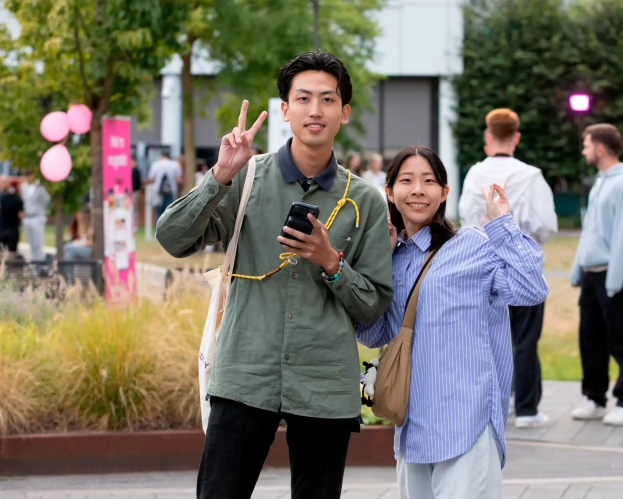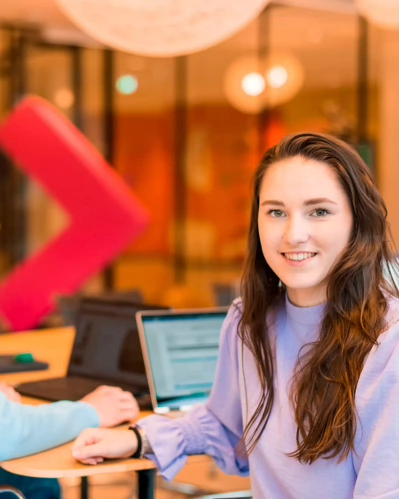
Centre of Expertise for Sustainable & Circular Transitions
The Centre of Expertise for Sustainable & Circular Transitions
At the Centre of Expertise Sustainable & Circular Transitions (CoE-SCT), we are committed to accelerating sustainable and circular transitions. Our practice-based research combines insights from behavior, ethics, politics, economics, and decision-making into an integrated approach that can be directly applied in practice.
Research lines: From food transition to Green AI
At this CoE-SCT, we focus on various research areas that address urgent social and economic challenges:
- Support for Food Transition: How can we create public support for sustainable food chains?
- Space for Circular Transition: Designing physical, policy, and organizational spaces for circular innovations.
- Impactful Sustainability Education: Education that truly makes a difference in knowledge and practice.
- Effective CSR Strategies: Not superficial PR, but sustainable impact deeply embedded in business operations.
- Green AI: Researching how AI can contribute to sustainability, in collaboration with the CoE Applied AI for Society.
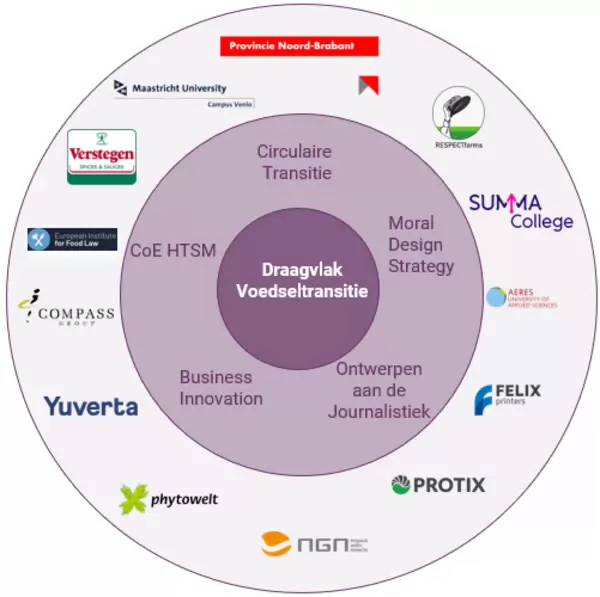
Support for Food Transition
The shift toward more sustainable food solutions often faces resistance within society. Despite technological advancements, there is often friction between innovative food technologies and cultural values, as food is deeply tied to identity and tradition. This makes it challenging to build support for changes in eating habits. Understanding and addressing the societal factors behind this resistance is essential to advancing the food transition successfully.
How can support for the food transition be increased to effectively integrate sustainable food alternatives into society?
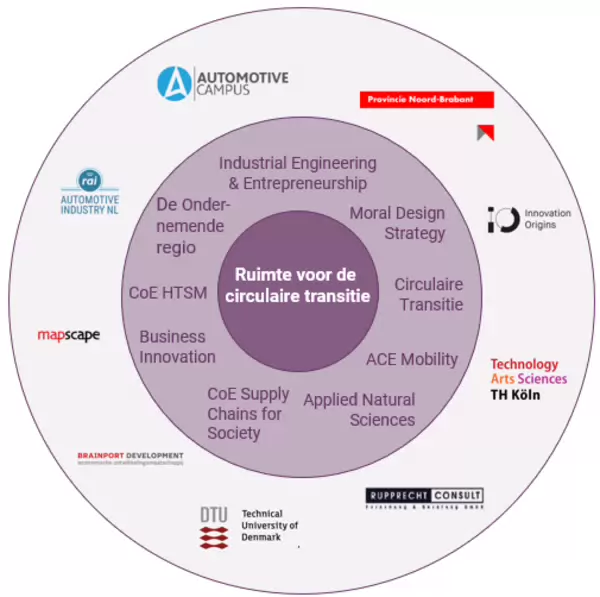
Space for Circular Transition
The circular transition requires an integrated approach, where technological innovations and spatial planning reinforce each other. Companies must not only set circular goals but also implement them in their operations and infrastructure. This requires collaboration between businesses, governments, and research institutions to create space for circular solutions and promote a culture of sustainability.
How can the space for circular transition be effectively designed to ensure that sustainable initiatives and spatial planning are optimally aligned?
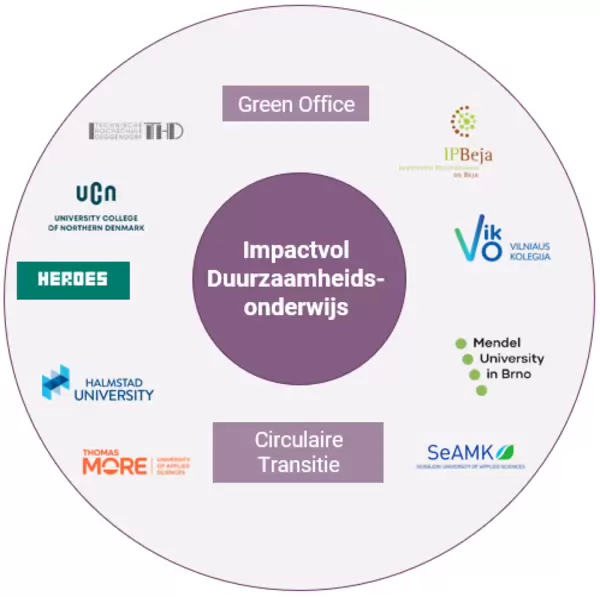
Impactful Sustainability Education
Sustainability education plays a crucial role in accelerating the sustainable and circular transition, not only by transferring knowledge to students and colleagues but also by enriching and transforming education itself. It is essential that sustainability is not just a separate topic but deeply embedded in the curriculum and teaching practice. This means that sustainability insights should not only be translated to the outside world but also have a strong inward effect.
How can we make sustainability and circular thinking a core principle of our education?
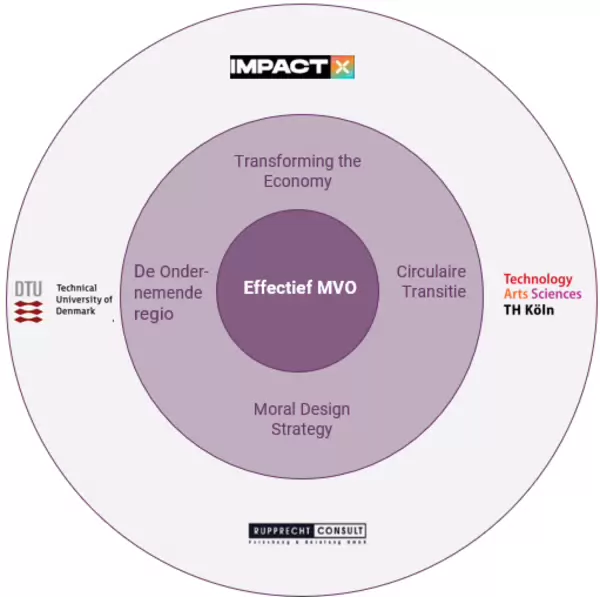
Effective CSR Strategies
Corporate Social Responsibility (CSR) is often seen as morally important, but in practice, it often remains limited to marketing and superficial symbolism. To help companies seriously invest in sustainability, a new way of economic thinking is needed, where profit and sustainability go hand in hand.
How can we ensure that sustainability strategies have a real impact and truly motivate companies to take sustainable actions?
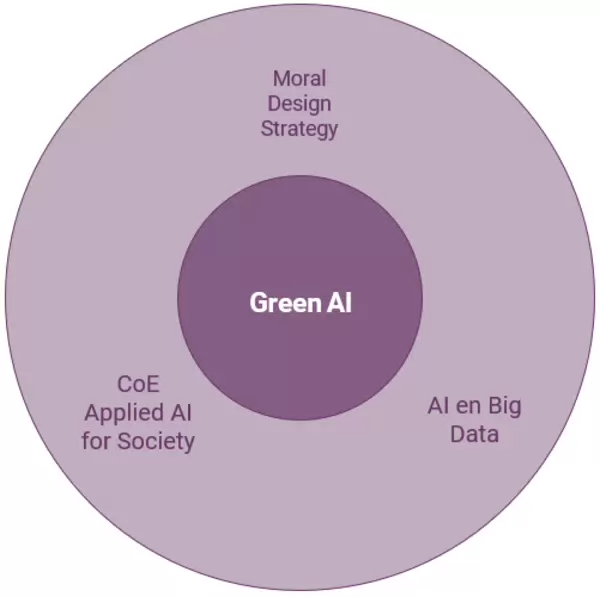
Green AI
AI has the potential to accelerate the transition to a more sustainable society by offering innovative solutions to complex challenges. At the same time, the development of AI itself carries a significant ecological footprint due to the high energy consumption of the systems. Therefore, it is essential not only to use AI to promote sustainability but also to make the technology itself more sustainable. This requires a dual approach: on one hand, using AI to drive sustainable progress, and on the other hand, minimizing the energy impact of AI technology itself.
How can we use AI to promote sustainability while simultaneously minimizing the ecological impact of AI technology?
An Approach with Impact
Our research areas are characterized by unique collaboration both within Fontys and beyond. We connect rich research expertise with external networks and work on innovative solutions that are not only relevant to the region but also meaningful at national and international levels.
- Regional Urgency as a Guiding Principle: We understand the local issues and work on solutions that are directly applicable.
- Focus on Key Areas, with a Bottom-Up Approach: We involve businesses, governments, and societal partners to develop results that align with daily practice.
- Building on Fontys' own strengths: with a unique portfolio, we create cross-pollination between CoEs and knowledge centers. Our "hands-on" approach ensures strong connections with businesses and a clear impact in practice.
- Contributing to a Circular and Sustainable Future.
With our integrated approach and practice-oriented focus, the CoE-SCT plays a leading role in the transition to a sustainable and circular economy.
Connection with other Knowlegde Themes
Sustainability and circularity are broad themes that intersect with all five knowledge themes at Fontys. Within the theme of Healthy and Inclusive Society, sustainability plays an important role in issues related to the living environment. The theme of Enabling Technologies not only focuses on developing new materials for a circular economy but also explores how AI can contribute to accelerating sustainability. The creativity within the theme of Creative Economy can lead to original innovations, such as ways to counter the effects of pollution.
This integration of sustainability in different areas shows how flexible and important it is in many fields.
Publications
van der Meulen, B., & Wernaart, B. (2023). Comparative food law. In Research Handbook on International Food Law (pp. 199-224). Edward Elgar Publishing.
Wernaart, B., & van der Meulen, B.(Eds.). (2022). Applied food science. Wageningen Academic Publishers.
van der Meulen, B., & Wernaart, B. (Eds.). (2020). EU food law handbook. Wageningen Academic Publishers.
Urazbaeva, A., Szajkowska, A., Wernaart, B., Tilkin Franssens, N., & Spirovska Vaskoska, R. (Eds.). (2019). The functional field of food law: Reconciling the market and human rights. Wageningen Academic Publishers.
Van der Meulen, B., Wernaart, B. & Kramer, K. (editors) (in press). the Elgar Concise Encyclopedia of food law. Edward Elgar Publishing.
Wernaart, B. & floto-Stammen, S. (editors). (In press). Food in transition (Multi Reference Work). Leiden: Brill-de Gruyter.
Wernaart, B. & Schouten, G. (editors). (In press). Moral design & green technology. Leiden: Brill-de Gruyter.
Wernaart, B. (2024). International Law and Business: Comparative Methods and Global Case Studies. BRILL.
Wernaart, B. (editor). (in press). The Routledge Companion to International law and responsible business. Routledge.

